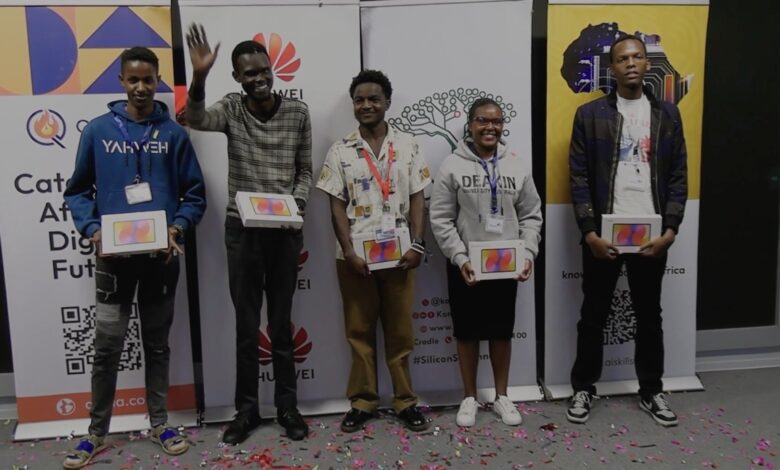
A recent continent-wide hackathon has spotlighted the innovative potential of African youth in applying Artificial Intelligence (AI) to solve pressing local challenges, with a significant focus on revolutionizing the agricultural sector. The Africa AI Literacy Week Hackathon, a collaborative effort by Qhala, Huawei, and Konza Technopolis, brought together young minds to develop practical, AI-driven solutions for real-world problems.
The 24-hour event saw 50 university students from across the continent compete to create impactful technologies. While the hackathon covered various themes including Fintech, Healthcare, and Education, it was the innovations in agriculture that took centre stage, reflecting the sector’s critical importance to Africa’s economy and food security.
Winning Innovations in Agri-Tech
The competition produced several high-potential solutions designed to empower smallholder farmers, who form the backbone of Africa’s agricultural economy but often face significant challenges in accessing markets and information.
First Place: Predicting Market Prices with AI
The top prize went to a team that developed an AI platform to forecast market prices for agricultural goods. This tool addresses a critical vulnerability for farmers: market uncertainty and exploitation by middlemen. By analyzing historical data, real-time market trends, and weather patterns, the platform gives farmers, traders, and financial institutions the data needed to make informed decisions. This aims to increase transparency and profitability for smallholders, ensuring they get a fair price for their produce. The winning team members were awarded Huawei MatePad tablets to support their future development work.
Runners-Up: AI Chatbots and Augmented Reality Solutions
Two teams shared second place, each tackling different aspects of the agricultural value chain. For their efforts, both teams received Huawei Band 10 smartwatches.
- Farm Data and AI Guidance: One team created a system for farm data collection and analysis, enhanced with an AI chatbot. This virtual assistant provides farmers with guidance on best practices, yield forecasting, and pest management in local languages. Crucially, it is designed to work without a constant internet connection, bridging a significant knowledge gap for rural farmers who may have limited connectivity.
- Augmented Reality for Farm Infrastructure: The other runner-up team developed a mobile application using AI and Augmented Reality (AR). By pointing a smartphone camera at a structure, the app can overlay real-time data like infrastructure conditions or usage statistics. While demonstrated for urban planning, its application in agriculture could help farmers optimize storage facilities, map irrigation systems, or assess the health of their farm buildings.
Fostering a New Generation of Innovators
The hackathon was structured as an intensive learning and collaboration environment, not just a competition. Participants received mentorship from academic and industry experts, including technical teams from Huawei and Konza Technopolis, guiding them from ideation to prototyping.
Dr. Shikoh Gitau, CEO of Qhala, stressed the importance of these initiatives, stating, “Africa cannot afford to be left behind as AI transforms industries and societies. We must create the awareness, support, and platforms that allow African youth to innovate and solve problems through AI, because they understand our challenges best.”
This vision of a locally-led tech boom was echoed by Josephine Ndambuki, Chief Manager for Business Development & Innovation at Konza Technopolis Development Authority. “Artificial intelligence is a key driver of the next frontier of development, and Konza is determined to be at the center of its growth and application across the continent,” she said, reaffirming Konza’s commitment to empowering the youth who will lead the “Silicon Savannah.”
The event also underscored the importance of public-private partnerships. Adam Lane, Director for Policy and Partnerships at Huawei Kenya, confirmed the company’s dedication to providing skills and resources to empower African developers. Organizers hailed the event as a major success and plan to scale future editions, building on the foundation of this year’s hackathon and fostering the continent’s growing pool of tech talent.





